
This article was last updated on May 20, 2022
Canada: ![]() Oye! Times readers Get FREE $30 to spend on Amazon, Walmart…
Oye! Times readers Get FREE $30 to spend on Amazon, Walmart…
USA: ![]() Oye! Times readers Get FREE $30 to spend on Amazon, Walmart…
Oye! Times readers Get FREE $30 to spend on Amazon, Walmart…
On the same day that the United States Senate failed to pass a bill approving the construction of the Keystone pipeline, the House managed to sneak one of those little bills that gets almost no attention from the media.
For background, let's look at what Representative Chris Stewart (R – Utah 2), sponsor of House Resolution 1422 had to say about the Environmental Protection Administration at a House Science, Space and Technology Committee Hearing on November 14, 2013:
We now have some sense of where Mr. Stewart is coming from when it comes to the EPA.
H.R. 1422, the rather innocuous-sounding EPA Science Advisory Board Reform Act of 2014 which was sponsored by Republican Chris Stewart (R – Utah 2), passed the House by a vote of 229 to 191 on November 18, 2014. Just in case you wondered, here are screen captures showing the "ayes" and "nays" and non-voters:
Here is the text of the bill:
Note section (2)(C) which states that "persons with substantial and relevant expertise are not excluded from the (Science Advisory) Board due to affiliation with or representation of entities that may have a potential interest in the Board's advisory activities.". This changes the EPA's current ability to screen out scientists with financial ties to corporations that may conflict with the EPA's Science Advisory Board (SAB). As well, according to section (2) (E), the new rules forbid scientists from participating in discussions that cite their own peeer-reviewed research.
The Bill is being touted as a move to increase the transparency and accountability of the EPA's science advisors, however, the Union of Concerned Scientists suggests that the changes open the door for more corporate influence on the Board since experts with financial ties to the corporations that may be impacted by the decisions of the SAB are not excluded from serving on the Board as shown in this letter:
It's interesting to note that H.R. 1422 turns the concept of conflict of interest on its head when it comes to science. While experts with corporate ties are allowed to serve on the Science Advisory Board, a Board that may have a direct impact on their corporate masters, scientists are not allowed to participate in Board activities that are directly or indirectly connected to their own, peer-reviewed research, a concept that would generally be considered a plus since that particular scientist would be very well versed on the subject.
The White House has already announced that they will veto H.R. 1422 because it would "…affect the appointment of experts and would weaken the scientific independence and integrity of the SAB.".
Click HERE to read more of Glen Asher's columns
You can publish this article on your website as long as you provide a link back to this page.

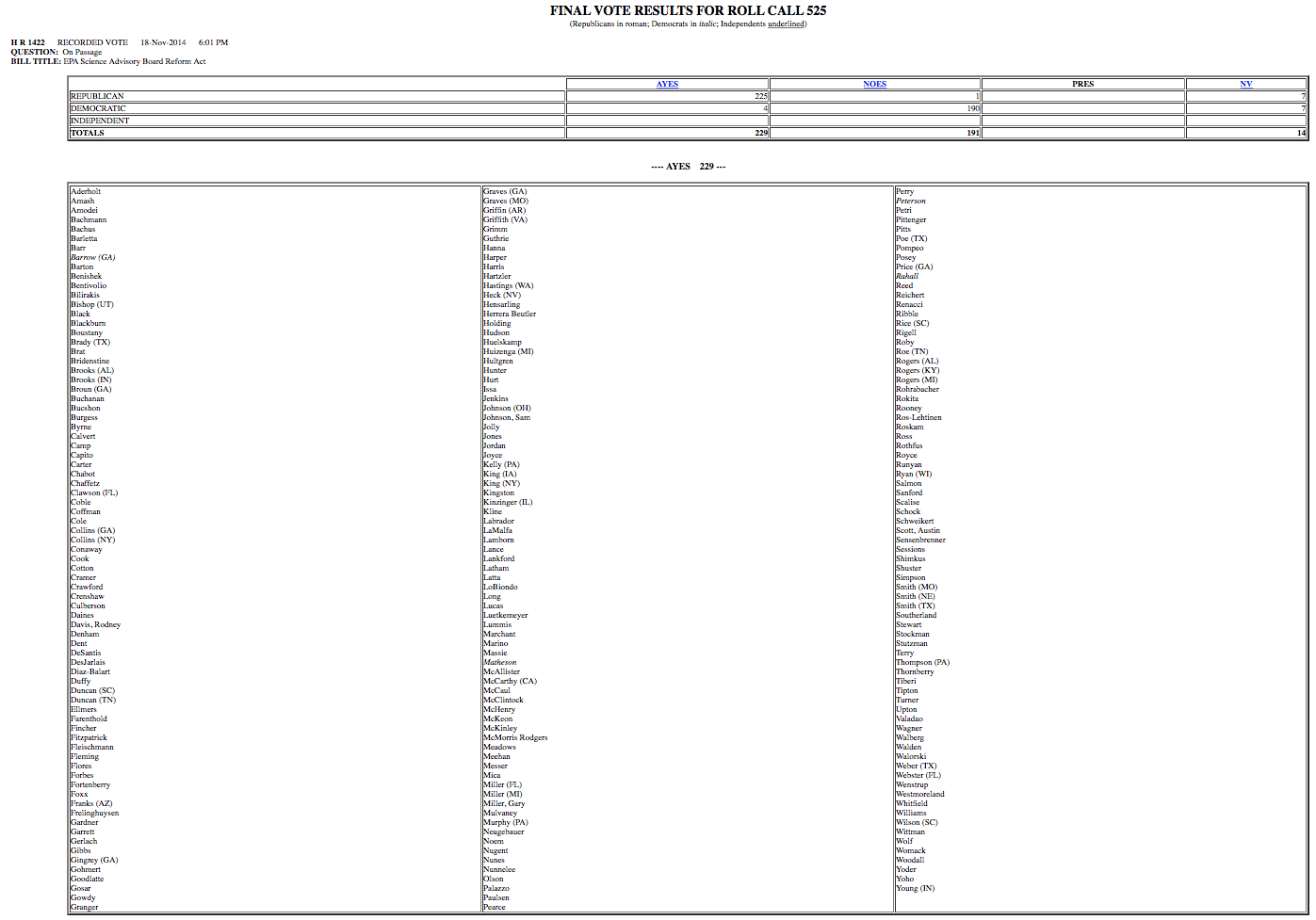
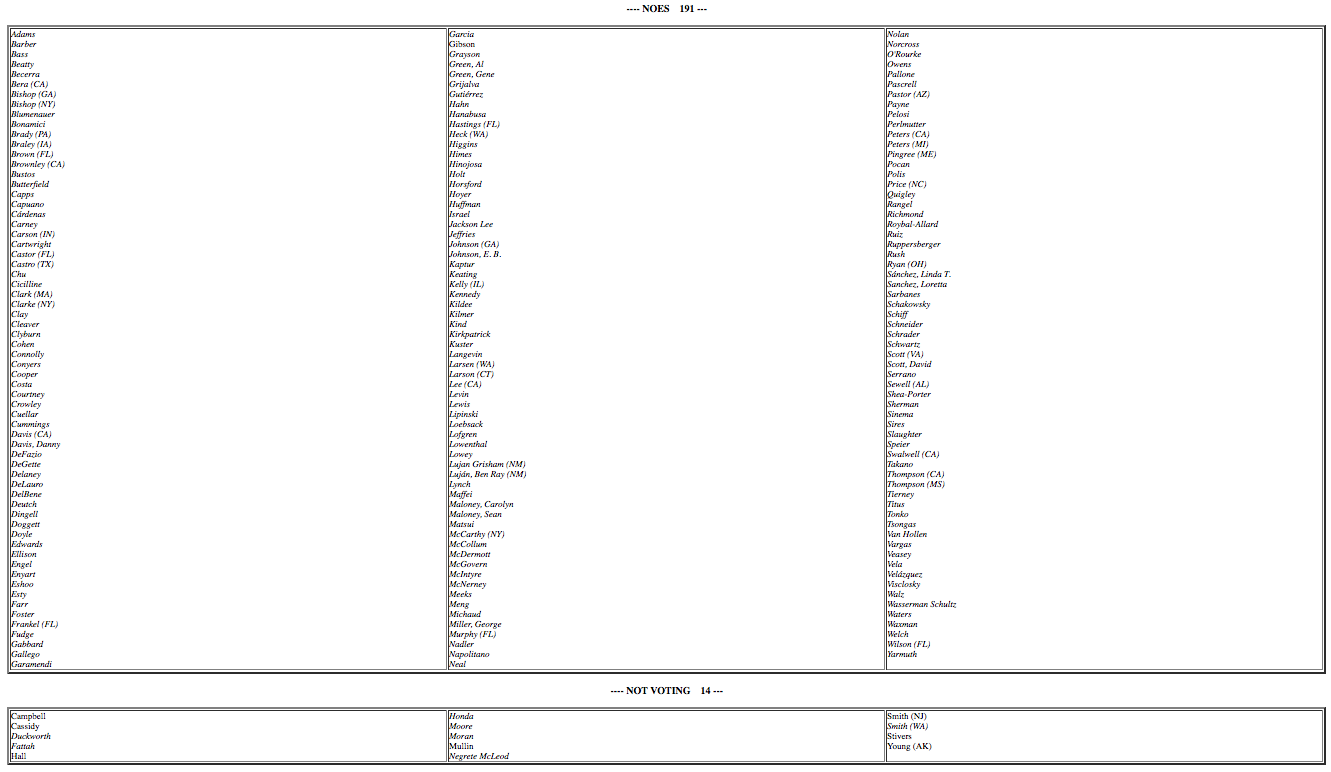
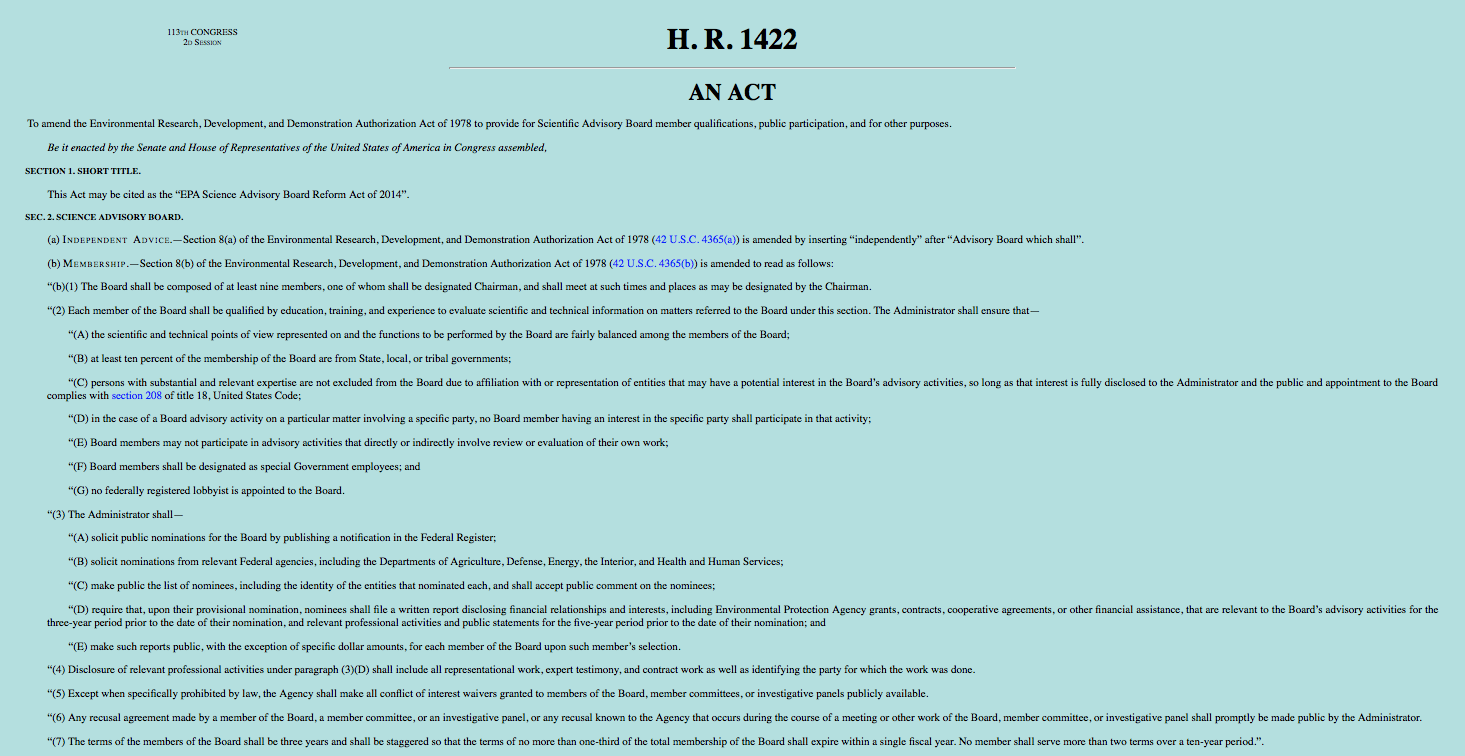
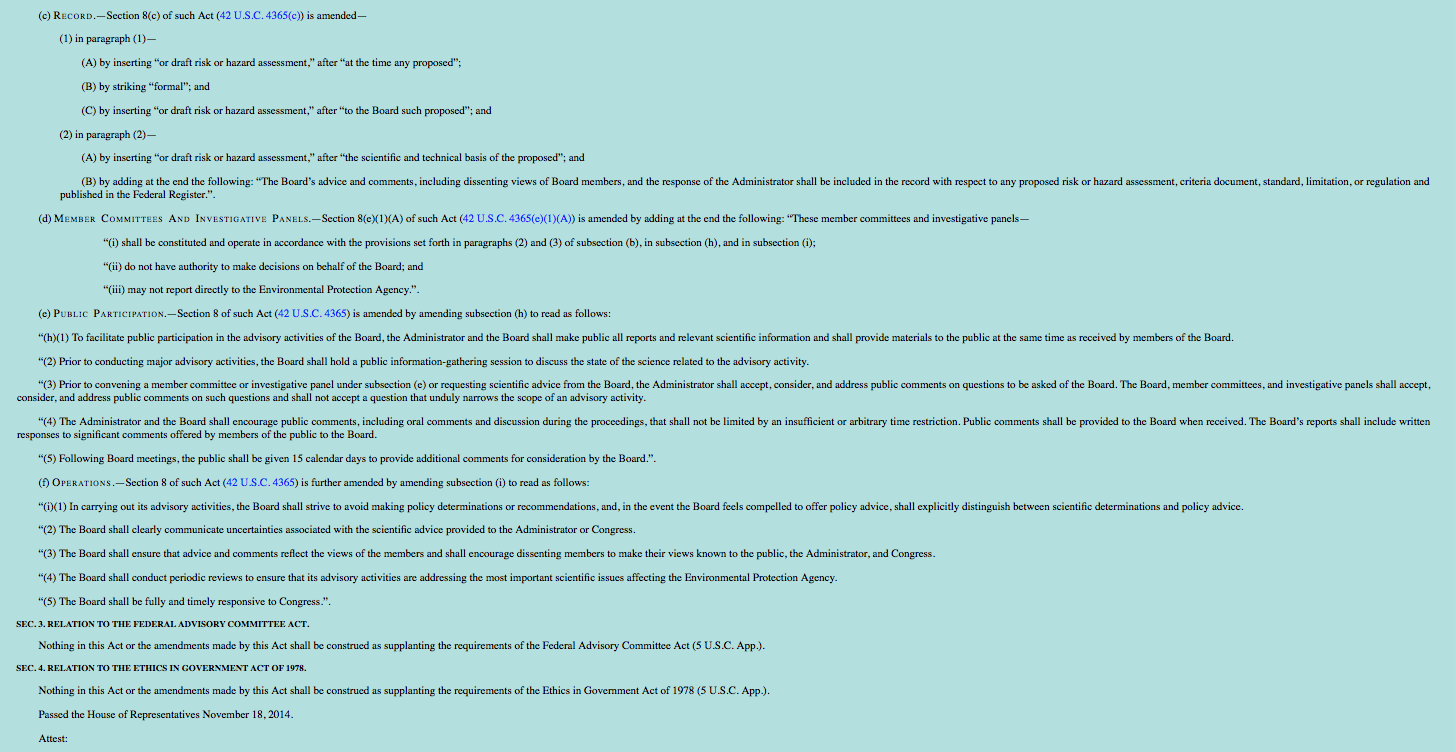
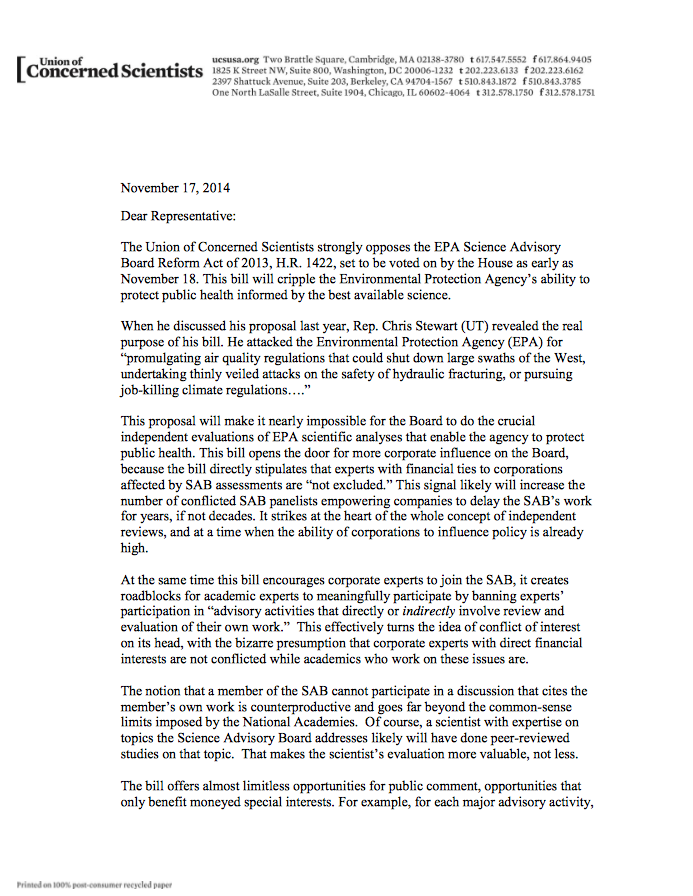
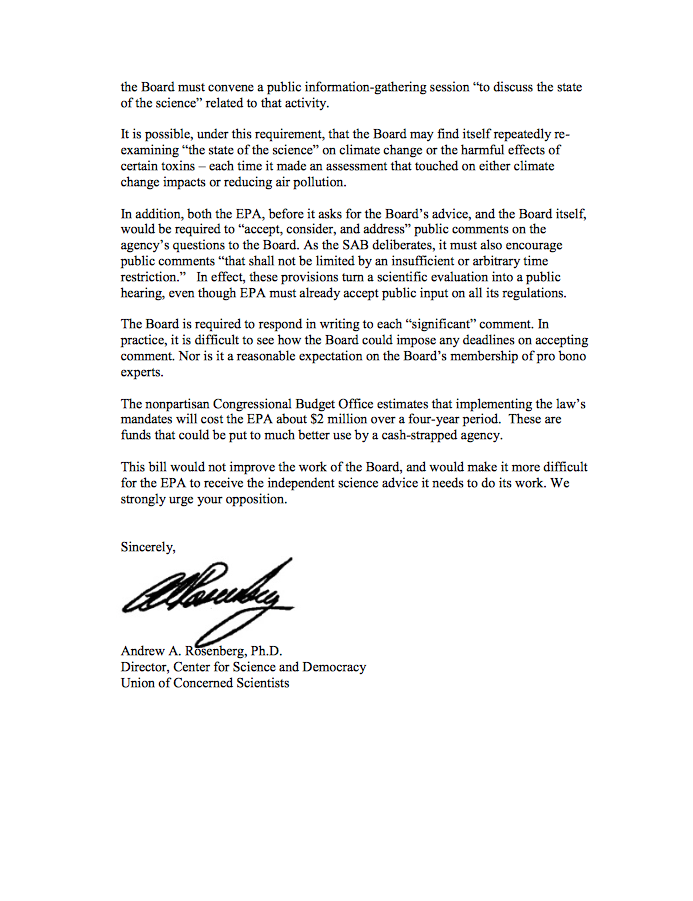
Be the first to comment